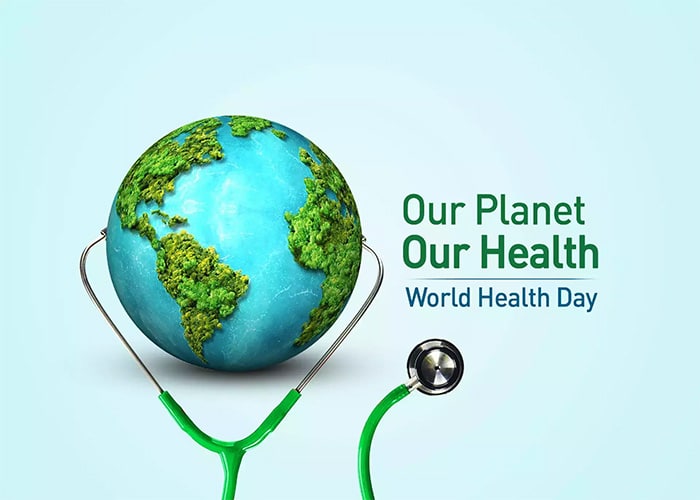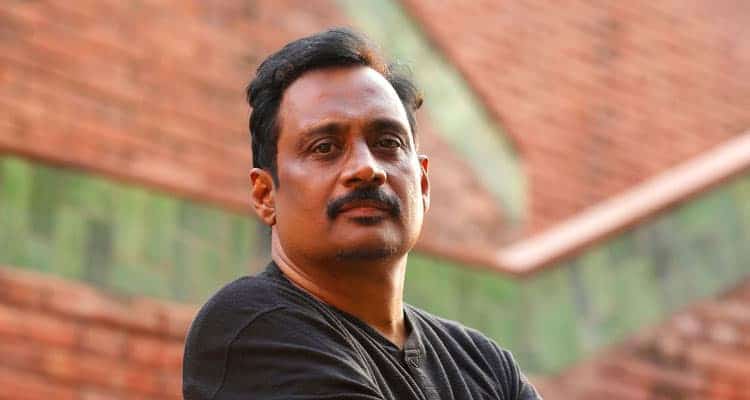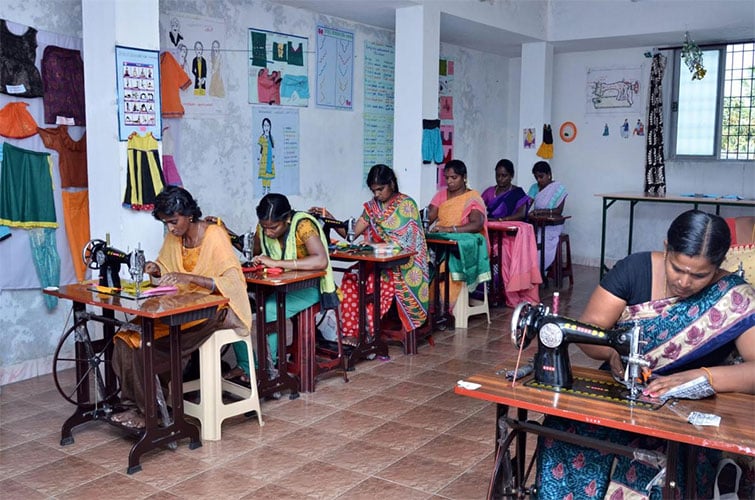World Health Day 2022 should help us introspect, strengthen the fort with help from all stakeholders
- Home
- Smile Team
- Page 163
(April 06, 2022)
This year’s World Health Day stresses on the need to protect people and the environment that they are part of.
The World Health Day is celebrated on April 7 every year to kindle hope for the world, to reimagine a world where clean air, water and food are available to all, where economies are focused on health and well-being, where cities are livable, and people have control over their health and the health of the planet. With the theme ‘Our Planet, Our Health’, World Health Day 2022 is aimed at attracting global attention towards the well-being of our planet and the humans living on it.
In the run up to World Health Day, WHO released a new air quality database that shows that around 2,000 more cities/human settlements are now recording ground monitoring data for particulate matter, PM 10 and/or PM 2.5 . Almost the entire global population (99%) is breathing air that exceeds WHO air quality limits and is threatening their health. A record number of over 6,000 cities in 117 countries are now monitoring air quality, but the people living in them are still breathing unhealthy levels of fine particulate matter and nitrogen dioxide, with people in low and middle-income countries suffering the highest exposures.
Estimates show that more than 13 million deaths around the world each year are due to avoidable environmental factors. This includes the climate crisis which is the single biggest health threat facing humanity. The climate crisis is also a health crisis.
Apart from human-induced climate hazards, scientists are wary of future pandemics that might strike, and brace for them, two years since the deadly coronavirus disease (Covid-19) pandemic struck us. Covid-19 is not the last pandemic, and the next one is imminent, unless we come together to prevent it.
Scientists and epidemiologists have pointed out the link between animals and humans for transmission of infectious diseases. A research paper published in Nature suggests that approximately three-quarters of emerging infectious diseases in humans have an animal origin.
Covid-19 and some of the other deadliest disease outbreaks around the world in modern times, including the Swine Flu pandemic of 2009, West African Ebola pandemic between 2014 and 2016, Zika virus outbreak and the Nipah virus, have shown the need for concerted efforts to be battle-ready and tackle future pandemics that are yet to come.
In the early 2000s there came a concept ‘One Health’ that recognizes the interconnections and health interdependencies among humans, animals, and the shared environments in which we live and interact. With the changing risks of global spread, the timeliness of early detection is emerging as a prerequisite in our ability to detect outbreaks at the stage when they can still be contained.
An estimate by the Department of Animal Husbandry & Dairying shows that an annual investment of approximately $22-$31 billion, globally, would strengthen animal sector systems, enough to prevent pandemics like coronavirus, saving trillions of dollars.
Preventing diseases from spreading – from wildlife to livestock, and eventually to humans is critical. Also, early detection and control of these diseases in livestock, could prevent human pandemics and mitigate the devastating consequences of Antimicrobial Resistance (AMR). This requires the adoption of a One Health approach for disease prevention.
The impact of the Covid-19 pandemic over the past two years almost derailed the healthcare infrastructure in many countries, including India. Shortage of oxygen, ventilators and PPE kits virtually throttled the fight against the virus, especially in the stressed phase when the second wave hit the country.
It was, with the support of non-governmental and civil society organizations that India could rebound and stand back on its feet. One such initiative was Smile Foundation’s Health Cannot Wait campaign that solicited long-term investments through donations to strengthen healthcare infrastructure in the country. It supported in setting up oxygen banks for critical patient support among vulnerable communities, mobilization of PPE Kits & N-95 Masks for frontline health workers, distribution of hygiene kits (including masks, soaps, sanitizers, oximeters), tele-counseling to dispel vaccine hesitancy, spread awareness on COVID-appropriate behavior and the provision of primary healthcare services to reduce the load on health infrastructure.
However, there are many other critical diseases that impact public health, especially in a diverse country like India. Several stakeholders and organizations, including global non-profit Malaria No More, are working towards addressing diseases like Malaria that have an impact while acknowledging that there are several barriers in addressing vector borne diseases. India is now in the last leg of achieving its Malaria elimination goals and is in major need of participation from the public and private sector, along with corporation from the public.
In fact, the World Health Assembly had in May 2015 adopted Global Technical Strategy for Malaria and set the ambitious new target of reducing the global malaria burden by 90% by 2030 by scaling up malaria responses and moving towards elimination.
Stakeholders engaged in India’s fight against malaria have shown that community action is helping countries achieve their malaria elimination goals.
The discussion around health remains incomplete without the fight against HIV and AIDS.
HIV continues to be a major global public health issue, having claimed 36.3 million lives so far. While there is no cure for HIV infection, with increasing access to effective HIV prevention, diagnosis, treatment, and care, including for opportunistic infections, HIV infection has become a manageable chronic health condition, enabling people living with HIV to lead long and healthy lives.
In India, National AIDS Control Organization (Naco) steers HIV and AIDS prevention, treatment, education, sensitization, and control programs.
Safe Zindagi, part of Program Accelerate and funded by USAID and Johns Hopkins University, has been working with the National AIDS Control Organization (Naco) since 2019 to advance progress towards the UNAIDS 95-95-95 goals to achieve epidemic control in India. Programs like Accelerate assist Naco in addressing gaps in programming and outreach among at-risk populations, including People Living with HIV (PLHIV) and four key population groups — female sex workers, men who have sex with men, transgender persons, and people who inject drugs.
There are organizations that are coming forward to bridge India’s healthcare gap for marginalized communities. One such facility is ‘Mitr Clinic’, India’s first-ever clinic that works exclusively for the
transgender community and is run by them. Started by Project Accelerate, a programme raising awareness on HIV and AIDS, Mitr Clinics support and address the needs and issues of members of the transgender community by engaging in conversations and activities built on faith and trust. No healthcare mechanism is complete without the focus on child health and nutrition. But the government along with various civil society organizations are working tirelessly towards strengthening child healthcare in India. So far, Smile Foundation has provided over 27.7 million meals to more than 200,000 families in 23 states of India. It aims to provide three square meals to more than 250,000 families and is working to provide 50,000 home isolation kits to Covid patients.
State governments are conducting some interesting health programs to push for improved health outcomes. States like Haryana, Uttar Pradesh, Bihar, and Madhya Pradesh are working towards this in a concerted manner. The government of Madhya Pradesh runs a bouquet of integrated health schemes such as the Janani Shishu Suraksha Karyakram, and the Navjat Shishu Suraksha Karyakram, apart from the Ladli Lakshmi Yojana which seek to provide end-to-end support to improve health and wellbeing of citizens.
What we now need, is greater integration of efforts to bring this all together towards the achievement of the national goal of health outcomes that are better than those in the developing world, so we can then aim to better these further.





